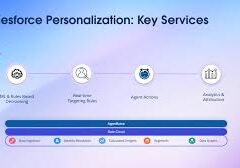Google Report Highlights Potential of Generative AI for Healthcare Administration
A new report by Google Cloud and The Harris Poll reveals that healthcare providers and payers see generative AI (GenAI) as a promising solution to streamline burdensome administrative tasks. According to the report, 89% of providers and 98% of payers view GenAI positively for this purpose. Potential of GenAI in Healthcare.
The report, titled “Measuring the Administrative Burden on U.S. Healthcare Workers — and How Generative AI Can Help,” surveyed over 1,000 healthcare providers, payers, and U.S. adults. Findings underscore the toll of administrative work on healthcare workers’ job satisfaction and patient care.
Clinicians spend about 28 hours per week on administrative tasks, mainly clinical documentation and communication. Medical and claims staff reported even higher administrative loads, with 34 and 36 hours spent weekly on tasks like documentation, communication, and prior authorization. Many respondents linked these demands directly to burnout, with 77% of claims staff, 81% of medical staff, and 82% of clinicians citing administrative burdens as significant contributors. Additionally, 78% of payer executives and 85% of provider executives noted that administrative work is a key driver of staffing shortages.
A majority of providers (80%) expressed that administrative tasks detract from time with patients, and 68% believe this negatively affects care quality. Concerns about human error were also common, with two-thirds of providers and 89% of payers indicating that administrative demands increase the likelihood of mistakes.
Potential of GenAI in Healthcare
The report emphasizes healthcare leaders’ interest in AI for tasks like documentation, coding, billing, scheduling, communication, prior authorization, and inventory management. Among respondents, 91% of providers and 97% of payers have a positive view of using GenAI for administrative work, and 89% of providers and 98% of payers are comfortable with the technology’s role in reducing their workload. Over half of providers see GenAI’s main benefits as reducing administrative burden and errors, while payers value its potential to connect with underserved populations, improve preventive care, increase job satisfaction, and expedite prior authorizations.
Patients also seem cautiously optimistic: nearly 60% of the public surveyed think using AI for healthcare administration is a “good or great idea,” and 85% would prefer providers spend more time focusing on patient care over administrative tasks. Just over 70% support using AI tools to allow providers more focus and improve care quality.
Aashima Gupta, Google Cloud’s global director of healthcare strategy and solutions, stated, “Healthcare workers have historically faced significant administrative burdens, intensified by regulatory requirements, complex billing, and EHR documentation. Generative AI offers a powerful solution by automating tasks and streamlining workflows, supporting healthcare professionals and ultimately enhancing patient care.”
🔔🔔 Follow us on LinkedIn 🔔🔔













